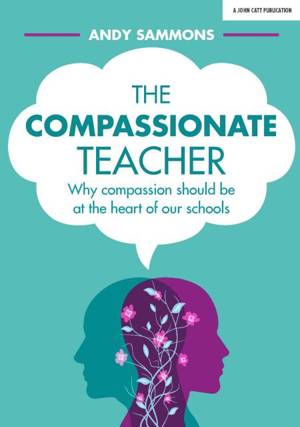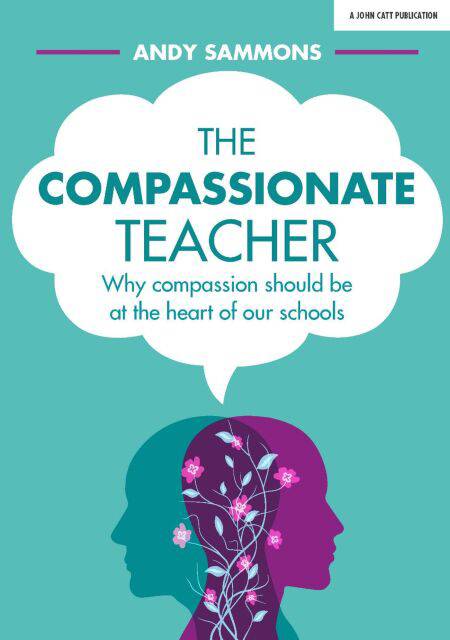
Bedankt voor het vertrouwen het afgelopen jaar! Om jou te bedanken bieden we GRATIS verzending (in België) aan op alles gedurende de hele maand januari.
- Afhalen na 1 uur in een winkel met voorraad
- In januari gratis thuislevering in België
- Ruim aanbod met 7 miljoen producten
Bedankt voor het vertrouwen het afgelopen jaar! Om jou te bedanken bieden we GRATIS verzending (in België) aan op alles gedurende de hele maand januari.
- Afhalen na 1 uur in een winkel met voorraad
- In januari gratis thuislevering in België
- Ruim aanbod met 7 miljoen producten
Zoeken
The Compassionate Teacher: Why compassion should be at the heart of our schools E-BOOK
Andy Sammons
E-book | Engels
€ 8,49
+ 8 punten
Omschrijving
Ask any teacher why they went into teaching, and they'll invariably refer to students or their subject. Yet, modern educators are faced with a dilemma: the industry judges us primarily on outcomes, offering the justification that grades improve life chances. Grades improve life chances as much as money buys happiness: it's no more than a prop or a poor substitute. Unless the profession starts to get to the heart of its reason for being, we might as well all pack up and go home. Education has a problem with its `why,' and unless it starts to encourage and insist its stakeholders start to improve their understanding of why compassion and relationships should be at the heart of everything we do, the same familiar cyclical mistakes will continue to be made, and all of those lovely things that we say we do in modern education such as improving life chances, creating citizens of the future and shaping young minds will be no more than an accidental and indirect by-product of time spent in our educational establishments.
Specificaties
Betrokkenen
- Auteur(s):
- Uitgeverij:
Inhoud
- Taal:
- Engels
Eigenschappen
- Productcode (EAN):
- 9781398383623
- Verschijningsdatum:
- 10/03/2019
- Uitvoering:
- E-book
- Beveiligd met:
- Adobe DRM
- Formaat:
- ePub

Alleen bij Standaard Boekhandel
+ 8 punten op je klantenkaart van Standaard Boekhandel
Beoordelingen
We publiceren alleen reviews die voldoen aan de voorwaarden voor reviews. Bekijk onze voorwaarden voor reviews.









